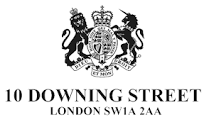PRESS RELEASE : More than 600 academies are now open and even more schools offered chance to apply [April 2011]
The press release issued by the Department for Education on 7 April 2011.
This month 162 schools have become academies and a further 473 are in the pipeline. Responding to increasing demand from headteachers the government is also opening the programme up to even more schools from today.
For parents and pupils this means more schools that can focus solely on the priorities of pupils and parents, rather than those of local officials and politicians.
As of today:
- 357 schools have converted into academies since September 2010
- 473 more have applied and are waiting to convert
- 547 secondary schools are now academies – 16.5% of all secondary schools
- half a million pupils now go to academies
In total there are now 629 academies open, compared to 203 in May 2010.
Until now only schools which Ofsted judged Outstanding or Good with Outstanding features have been allowed to apply to convert in their own right. Other schools have had to apply as part of wider chains, working with strong schools.
However, many other mainstream and special schools have said they should be allowed to become stand-alone academies. Responding to this demand the government will, from today, consider applications from any school, including special schools, that can make a compelling case for academy status – looking in particular at:
- exam performance over the last 3 years
- comparison with local and national exam performance
- latest Ofsted reports with a specific focus on ‘capacity to improve’, ‘outcomes’, and ‘leadership and management’
- for special schools, in addition to the above, other success in supporting the learning of pupils with special educational needs
- any other matters that the school may rely on in order to demonstrate that it is performing well
Lord Hill, Minister for Schools, said today:
I am delighted that so many schools have decided to become academies. As academies they can decide what is best for their pupils, parents and the local community, free from red-tape and politicians.
By setting good schools free and improving performance in weak schools we will raise standards for all children no matter their background.
Heads of new academies welcomed their new freedoms:
Liz Cresswell, Headteacher, Brighouse Academy, Calderdale, West Yorkshire, said:
Brighouse High School focuses relentlessly on driving up standards for pupils of all levels of ability. As an academy we intend to continue with this mission and to take advantage of the freedoms to widen opportunity and support raising achievement even further. The freedom from bureaucracy, especially in terms of budgets, will allow us to target spending on the pupils, on reinforcing high standards of teaching and on maintaining a high quality learning environment.
It is our intention to continue to promote the excellent ethos of our school and to continue to serve the community of Brighouse. Academy freedoms will enable us to achieve our aims even more effectively.
Roy Hepplestone, Head Teacher, Whitehill Community Academy Calderdale in West Yorkshire, said:
We are delighted to become an independent state-funded primary academy and look forward to being able to innovate and make a difference within our educational community. In particular we relish the opportunity to be creative with our new freedoms with regards to funding, curriculum development and systems leadership with the added opportunity to support, develop and improve another school.
The future is a bright one for the Whitehill Community Academy.
David Hermitt, Head Teacher, Congleton High School in Cheshire, said:
The academy freedoms are already reaping benefits for the school and allowing more resources to be directed at school improvement.
Kevin Hollins, Principal of Knutsford High School in Cheshire welcomed the decision to let more schools apply:
We are delighted to hear of the government’s intention to expand the Academy programme to schools such as ours. The new arrangements enable schools such as ours to demonstrate their capacity to exploit the potential of academy status and add a great deal to the programme.
In 6 local authorities the majority of their secondary schools are now academies, representing a fundamental shift of control to schools. The six LAs are:
- Southwark
- Rutland
- Bromley
- Plymouth
- North East Lincolnshire
- Reading



